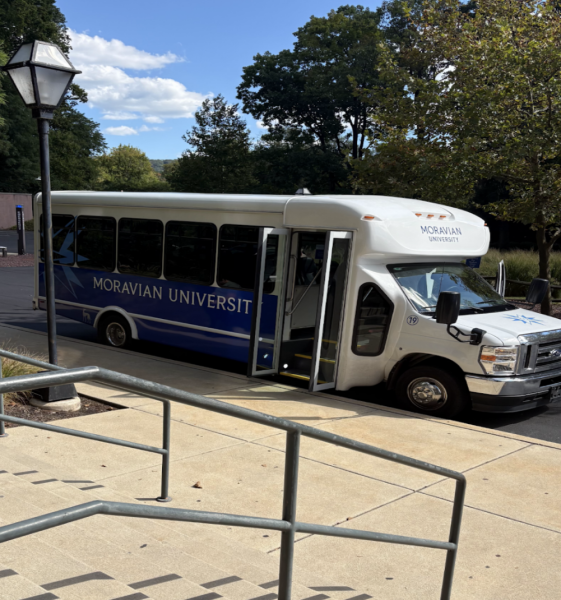Abortion: Polarizing Principles and the Potential for Pennsylvania

Photo courtesy of msmagazine.com
On Jan. 22, 1973, in a 7-2 decision, the Supreme Court dismantled a Texas district court’s rejection of abortions in the state.
At the time, Justice Harry A. Blackmun crafted the majority opinion which stated that the Texas court infringed on a women’s right to privacy of body and ruled to protect a woman’s right to an abortion as implicitly stated by the 14th amendment, the constitutional right to privacy.
In this amendment, states legally cannot restrict a person of “life, liberty, or property, without due process.” Because of the due process clause and the right to privacy, the Court concluded that the choice of abortion goes to the pregnant woman. The ruling detailed that abortions could be permitted during the first two trimesters of pregnancy.
This decision signified a necessary change in the country and promoted accessibility for the disenfranchised and disadvantaged. Bodily autonomy as fundamental liberty was also heavily emphasized. Additionally, it was a touchstone for second-wave feminism and a substantial progression of women’s rights.
However, on Jun. 24, 2022, nearly 50 years after the Court’s decision, the Supreme Court officially overturned Roe v. Wade with a 6-3 decision, completely discarding it, as well as Casey v. Planned Parenthood.
With Dobbs v. Jackson Women’s Health Organization, the court officially affirmed that “The Constitution does not confer a right to abortion; Roe and Casey are overruled; and the authority to regulate abortion is returned to the people and their elected representatives.” In essence, according to the majority opinion, abortion is not a constitutional right and its practices must be overseen by the states.
This polarizing decision roused the nation with advocates relieved at the Court’s decision and opposers in disdain at what this symbolizes for the future of this country and human rights.
This new opposition to abortion signifies is not only a regression of woman’s reproductive rights and medical privacy, but it also triggers reconsideration of other Court-ruled sanctums, such as the legalization of gay marriage. Justice Clarence Thomas specifically asserted in concurrence concerning the court that, “In future cases, we should reconsider all of this Court’s substantive due process precedents, including Griswold, Lawrence, and Obergefell.” He also vehemently claimed that “because any substantive due process decision is ‘demonstrably erroneous,’ we have a duty to ‘correct the error’ established in those precedents.”
When it came to Roe, abortion care was united with medically safe practices, which would lessen the burdens on people of color and those with low-income. Previously, most states banned abortions except in specific circumstances, but Roe affirmed abortion care in all states as protected by the 14th amendment.
It highlighted a person’s autonomy over their pregnancy without governmental pressures and before a point of viability. Even after the point of viability, abortion may still be utilized in cases where it is endangering the life of the host. In a Post-Roe country, the concern falls heavily on women who will seek unsafe medical assistance. Abortions will not stop; instead, they will be practiced in medically unsafe institutions using potentially harmful methods.
These back-alley abortions which were once a thing of the past will now become prevalent again and death by unsafe termination could see a surge.
As the midterm elections are quickly approaching, there is undeniably emphatic tension when it comes to voting for local candidates.
With abortion rights returning to the states, many governmental officials immediately employed abortion restrictions and bans. This coming midterm election season will be crucial in the scope of keeping abortions legally and medically safe. Now more than ever are individuals vehemently urging others to utilize their rights as voters and pay heed to what occurs on a local level.
For Pennsylvania, just like in other states, abortion rights hang in the polarizing balance of two candidates, particularly Josh Shapiro (D) and Doug Mastriano (R).
Josh Shapiro has served as the Attorney General of Pennsylvania since 2017 and represented the 153rd district, serving the Pennsylvania House of Representatives from 2005 to 2012. He announced his gubernatorial campaign on Oct. 13, 2021. Much of his campaign revolves around preserving voting rights, and reproductive rights, cutting taxes, and raising the minimum wage to $15.
Specifically, on abortion, Shapiro aims to enhance accessibility. On social media, has gone on the record to say, “I’m pro-choice – which means I believe women deserve the right to make decisions about their own bodies.” Abortion has become one of his main campaign focal points and essentially wishes to preserve the current law of abortion being legal for up to 24 weeks of gestation.
Doug Mastriano has been serving on the Pennsylvanian Senate since 2019 as a member of the 33rd district and served in the military from 1986 to 2017. He announced his gubernatorial campaign on Jan. 8, 2022. His ideologies revolve around Christian nationalism, the sanctity of traditional values, and conquering controversial topics like expanding gun rights.
On abortion, he has asserted that he wants to prohibit abortions with no exceptions to rape, incest, or threat to the mother’s life. He would impose restrictions as early as six weeks. Since gaining his senatorial seat in 2019, Mastriano has even endorsed bills like the heartbeat bill, which enforces restrictions on abortion if a heartbeat of the fetus is detected.
In a Republican-controlled legislature, Pennsylvania’s new governor could severely impact abortion care in the state, whether that be either vetoing or passing anti-abortion bills. Pennsylvanians have much to anticipate in this upcoming gubernatorial election.
For Moravian students, it is important to be registered to vote for optimal results. If you have not already registered, the deadline is Oct. 24. If you need help registering, check out Liz Kameen’s article on how to register.










Dr. Sara McClelland • Sep 17, 2022 at 1:54 pm
Such an important issue in Pennsylvania this election cycle. Remember to Get Out and Vote!
Claire Kowalchik • Sep 16, 2022 at 3:39 pm
Thank you for this article. It is important. I am deeply disturbed by the overturning of Roe vs Wade, and we’ve already seen the dire consequences as in the case of the 10-year-old rape victim who had to travel to Indiana for an abortion and the woman whose membranes broke early in her pregnancy but was forced to wait to the brink of life-threatening infection before an abortion was allowed. In many states, women will be forced to give birth to babies whose brains or other organs form outside the body. These are the acute horrors. The broader context of this Supreme Court decision is also horrific because it takes away a woman’s right to make decisions about her body. This is not just a matter of whether you are for or against abortion; it’s also about whether you are for or against women. We must stand up for women’s rights. Our votes are our voices, and they get counted (at least for now).
Dr. Sara McClelland • Sep 17, 2022 at 1:55 pm
https://www.nytimes.com/2022/06/24/opinion/abortion-roe-activism-how-to-help.html?searchResultPosition=1